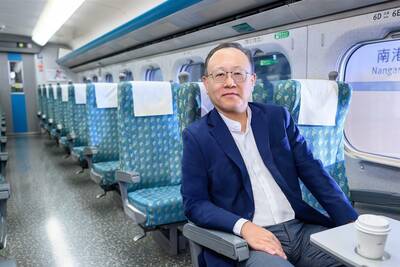Taiwanese-style popcorn chicken (鹽酥雞) beat fried chicken cutlets and bubble tea as people’s favorite night market snack, a survey by Taipei-based EzTravel showed.
EzTravel said that respondents in an online survey were asked to identify their favorite night market snacks, with Taiwanese popcorn chicken coming out on top, beating fried chicken cutlets — the favorite of foreign tourists — followed by bubble tea.
The other favorite night market snacks are, in descending order, oyster omelette, stinky tofu, papaya milk, mango shaved ice, noodles with oysters and braised intestines, sausage with sticky rice and fried sweet potato balls.
Four of the top 10 night market snacks are deep-fried food — popcorn chicken, fried chicken cutlets, stinky tofu and fried sweet potato balls — which is not surprising because people find it hard to resist the crispy taste of fried food, the company said.
The popularity of oyster omelettes and oyster noodles shows that people like the taste of fresh shellfish, it added.
Bubble tea remained a favorite dessert, but Taiwanese apparently preferred papaya milk over mango shaved ice — another favorite of foreign tourists, the company said.
A surprise entry to the top 10 was fried sweet potato balls, EzTravel said, adding that they have the potential to become a favorite among international visitors.

The inspection equipment and data transmission system for new robotic dogs that Taipei is planning to use for sidewalk patrols were developed by a Taiwanese company, the city’s New Construction Office said today, dismissing concerns that the China-made robots could pose a security risk. The city is bringing in smart robotic dogs to help with sidewalk inspections, Taipei Deputy Mayor Lee Ssu-chuan (李四川) said on Facebook. Equipped with a panoramic surveillance system, the robots would be able to automatically flag problems and easily navigate narrow sidewalks, making inspections faster and more accurate, Lee said. By collecting more accurate data, they would help Taipei

STATS: Taiwan’s average life expectancy of 80.77 years was lower than that of Japan, Singapore and South Korea, but higher than in China, Malaysia and Indonesia Taiwan’s average life expectancy last year increased to 80.77 years, but was still not back to its pre-COVID-19 pandemic peak of 81.32 years in 2020, the Ministry of the Interior said yesterday. The average life expectancy last year increased the 0.54 years from 2023, the ministry said in a statement. For men and women, the average life expectancy last year was 77.42 years and 84.30 years respectively, up 0.48 years and 0.56 years from the previous year. Taiwan’s average life expectancy peaked at 81.32 years in 2020, as the nation was relatively unaffected by the pandemic that year. The metric

TAKING STOCK: The USMC is rebuilding a once-abandoned airfield in Palau to support large-scale ground operations as China’s missile range grows, Naval News reported The US Marine Corps (USMC) is considering new sites for stockpiling equipment in the West Pacific to harden military supply chains and enhance mobility across the Indo-Pacific region, US-based Naval News reported on Saturday. The proposed sites in Palau — one of Taiwan’s diplomatic allies — and Australia would enable a “rapid standup of stored equipment within a year” of the program’s approval, the report said, citing documents published by the USMC last month. In Palau, the service is rebuilding a formerly abandoned World War II-era airfield and establishing ancillary structures to support large-scale ground operations “as China’s missile range and magazine

Passengers on Taiwan High Speed Rail (THSR) will be required to use headphones and make phone calls in gangways under new “quiet travel” rules starting Sept. 22. THSR Chairman Shih Che (史哲) told media that THSR will run a three-month promotional campaign to ensure widespread adoption of the new rules. Those repeatedly ignoring the guidance face the potential termination of their transport contract, which can result in them getting escorted off the train, according to THSR. Shih shared his hope to cultivate an environment conducive to rest and reading for the train’s passengers, stating that these changes aim to “promote self-discipline” among passengers